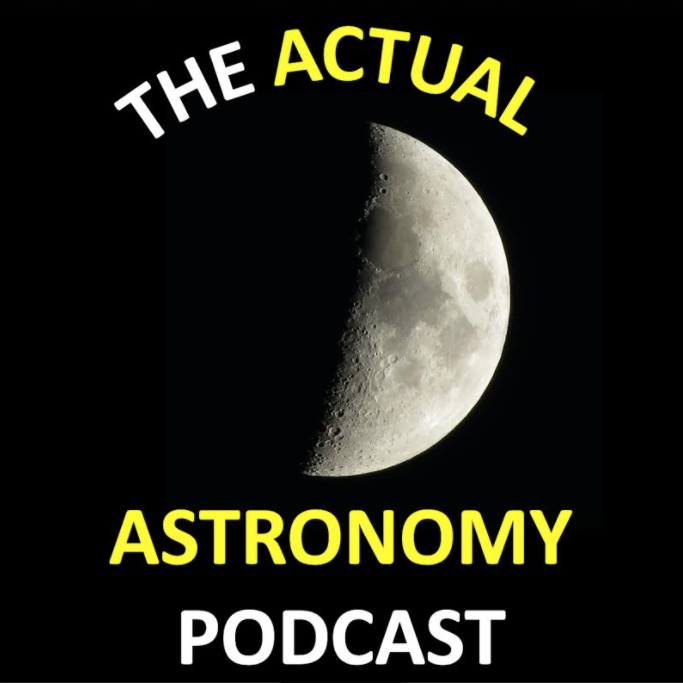Podaster: Shane and Chris

Title: The Observer’s Calendar for May 2024
Organization: Actual Astronomy
Link : https://actualastronomy.podbean.com/ ; https://www.deepskyeye.com/
Description: The Actual Astronomy Podcast presentsThe Observer’s Calendar for May 2024. In this episode we’ll talk about A meteor shower, Mercury in the morning sky lines up with other planets and Pallas at opposition.
Bio: Shane and Chris are amateur astronomers who enjoy teaching astronomy classes and performing outreach where they help the eyes of the public to telescope eyepieces.
Peter Jedicke was National President of the Royal Astronomical Society of Canada from 2004 to 2006 and is now a Fellow of the RASC. He is also Honorary President of the RASC London Centre.
Today’s sponsor: Big thanks to our Patreon supporters this month: Paul M. Sutter, Chris Nealen, Frank Frankovic, Frank Tippin, Jako Danar, Michael Freedman, Nik Whitehead, Rani Bush, Ron Diehl, Steven Emert, Brett Duane, Don Swartwout, Vladimir Bogdanov, Steven Kluth, Steve Nerlich, Phyllis Foster, Michael W, James K Wood, Katrina Ince, Cherry Wood.
Please consider sponsoring a day or two. Just click on the “Donate” button on the lower left side of this webpage, or contact us at signup@365daysofastronomy.org.
Please visit our Patreon page: https://www.patreon.com/365DaysOfAstronomy
or you can consider to sponsor a day of our podcast : https://cosmoquest.org/x/365daysofastronomy/product/sponsor-an-episode-of-365-days-of-astronomy/
Transcript:
Objects to Observe in the May 2024 Night Sky on Episode 421 of the Actual Astronomy podcast. I’m Chris and joining me is Shane. We are amateur astronomers who love looking up at the night sky and this podcast is for everyone who enjoys going out under the stars.
Friday May 3rd Saturn 0.8- of a degree left of the Moon this morning
Sunday May 5th – Eta Aquaria Meteor Shower ZHR=50
Monday May 6th – Mercury and Moon ~ 4-degrees
Tuesday May 7th – New Moon
Week of May 5th to 11th – Saturn Mars and Mercury line up in the morning sky this week. Best on Wed the 8th.
May 9th – Mercury at Greatest Elongation in the morning sky.
May 15th – First Quarter Moon
May 16th – Moon and Juno just over a degree apart and Ceres stationary, so there’s some asteroids to hunt down.
May 16th – Lunar Straight Wall Visible
May 17th – Pallas at opposition
2 Pallas is the third-largest asteroid in our Solar System. It was the second asteroid discovered, after Ceres, and is a likely remnant protoplanet. Like Ceres, it is a carbonaceous chondrite, but doesn’t have the watery interior like Ceres.
During the planetary formation of the Solar System, many objects grew in size through the accretion process to approximately the size of Pallas. Most of these protoplanets were absorbed into other planets. Pallas, Vesta and Ceres are the remaining bodies from this early stage of planetary formation to survive within the orbit of Neptune.
Discovered by the German astronomer Heinrich Wilhelm Matthäus Olbers on 28 March 1802, it was considered to be a planet, along with the other asteroids of the time. The discovery of many more asteroids after 1845 eventually led to the separate listing of “minor” planets from “major” planets, and the realisation in the 1950s that these small bodies did not form in the same way as the larger planets.
May 18th – Internationally astronomy day – good work guys picking an 80% lunar phase
May 23rd – Full Moon
May 23/24 – I see for someplace there might be an occultation but in the UK the Moon Occults M4
May 27th – Ceres about a degree North of the Moon
May 30th – Last Quarter Moon
Concluding Listener Message: Please subscribe and share the show with other stargazers you know and send us show ideas, observations and questions to actualastronomy@gmail.com
End Episode 421*
End of podcast:
365 Days of Astronomy
=====================
The 365 Days of Astronomy Podcast is produced by Planetary Science Institute. Audio post-production by Richard Drumm. Bandwidth donated by libsyn.com and wizzard media. You may reproduce and distribute this audio for non-commercial purposes.
This show is made possible thanks to the generous donations of people like you! Please consider supporting to our show on Patreon.com/365DaysofAstronomy and get access to bonus content.
After 10 years, the 365 Days of Astronomy podcast is entering its second decade of sharing important milestone in space exploration and astronomy discoveries. Join us and share your story. Until tomorrow! Goodbye!

